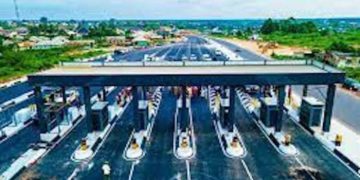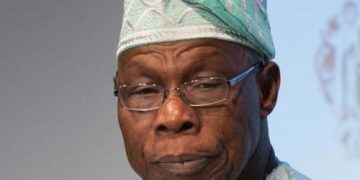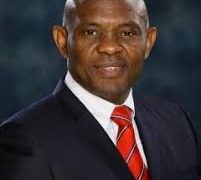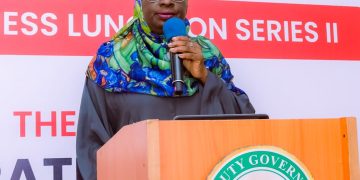
By Ayobami Ife, Abeokuta
In a clime such as ours where poverty and economic disparity abound as major challenges, and which a good number of people grapple with daily, the Islamic Cooperative Society and Microfinance bank has emerged as a source of succour to Muslims and marginalised communities in Nigeria.
In this perspective, several Islamic organisations have played a pivotal role in lessening the burden of suffering on people by providing financial assistance to them with zero-interest rates, in adherence to Islamic principles. One such initiative is the Al-Hayat Relief Foundation.
The Daily Crucible chanced on this organisation recently and explored what many reckoned as its profound impact in respect to empowering individuals, fostering community development, and contribution e to socioeconomic stability in Nigeria.
Islamic microfinance banks operate on the principles of Shariah, prohibiting interest (riba) and promoting risk-sharing, ethical investments, and social welfare.
Undoubtedly, it emphasises financial inclusion, particularly for the underprivileged, by providing access to interest-free loans and other financial services. This approach aligns with Islamic teachings, emphasising justice, equity, and compassion in economic dealings.
Several Islamic organisations in Nigeria have spearheaded efforts to implement Islamic microfinance banks as a means of addressing poverty and alleviating suffering. Among them are institutions like Jaiz Bank, Zakat and Sadaqat Foundation and the Al-Hayat Relief Foundation.
These Foundations started on the principle that a country with double digits interest rate will go nowhere in terms of its economy and wellbeing of its people. This has made them to stand out for their commitment to serving the less fortunate while upholding Islamic financial principles.
What started as a mere protest to other ways of swindling people of their hard-earned money 27 years ago with six ideological Muslims has now snowballed into a conglomerate of sort, with more than 20,000 members scattered across southwest states and communities, including Kwara State.
Yet, it is still growing in catering for the wellbeing of ordinary citizens as well as contributing its quota to the Gross Domestic Product (GDP) of the country through its Small and Medium scale Enterprises (SMEs), with more than five other project in its folds – Hospital, Microfinance Bank, Real Estate, Cooperatives society.
Al-Hayat Relief Foundation, through its numerous poverty alleviation programmes and its Islamic microfinance bank, has empowered individuals, especially Muslims and non-Muslim groups in the country, by providing them with access to interest-free loans for entrepreneurial ventures, which has enabled them to start or expand their small businesses. It has also been able to offer a pathway out of poverty and also reduce people’s reliance on charitable aids.
Traditional banking systems often exclude the poor in the society due to stringent eligibility criteria and interest-based loans, but Islamic microfinance banks, which Al-Hayat is one of them, bridges this gap by offering inclusive financial services that cater to the specific needs of disadvantaged communities, fostering a more equitable society.
However, to further find a lasting solution to the numerous economic crisis bedeviling the country, the National President of the foundation, Dr. Asif Olatubosun Azeez believes government at all levels, particularly the Federal government, needs to support farmers with interest-free loans, which will encourage large numbers of youths to go back to farming.
Dr. Azeez, who is also a senior lecturer at Sikiru Adetona College of Education, Science and Technology, Omu- Ijebu, stated that for the nation to overcome the current economic challenges and rapid fall of the Naira, government should as a matter of urgency, encourage farmers by way of granting free interest loans.
He explained that the organisation is working towards creating a Foundation that will be generating money, and the proceeds from the endowment will be used to cater to the less-privileged in the society.
He stated that the government should collaborate with Islamic organisations like Al-Hayat Relief Foundation and route many of the interventions through it, to cushion the effects of the current economic downturn so as to get the needed results.
He further stated that the fall in the Naira was due to the collapse of SMEs structure in the country, adding that they need the financial assistance and more enabling environment to succeed.
The president of the foundation pointed out that part of the challenges faced by the organisation is how to penetrate the northern region of the country to help reduce the poverty rate through zero-interest loans that will have a significant impact on the nation’s gross domestic products (GDP).
“Business is the life wire of Al-Hayat. The foundation engages in halal businesses since it does not take interests. The business activities of all the branches conform with the principles laid down in fiqh Muʿamalah,” he said.
The expert in Islamic banking and finance also noted that for Islamic banking to contribute its quota meaningfully to the nation’s economy, the department for Islamic banking at the Apex bank should be allowed to grow and protect the bank from liquidating by using Islamic micro insurance to protect it.
He noted that the foundation is an interest-free cooperative society formed 27 years ago to rescue Muslim brothers who were often forced to take loans from money lenders and charged exorbitant interests.
“More so, we observed that the practice was that, after securing the loans, the lenders would not want the loans to be paid back. Rather, they would prefer the interest to accumulate,” he said.
He also urged the government to fully support the Small and Medium Enterprise sector so as to boost the nation’s GDP and limit reliance on foreign goods.
Although, the organisation started with traditional cooperative society and still operates same, the organisation’s solid foundation and tenacity gave them an edge above others by giving birth to other developmental projects.
Also speaking, the General Manager of the Foundation, Alhaji Waidi Raimi, said the Foundation, which is founded to cater to the interest of Muslim brothers and sisters, have branches in all the Southwest states including Kwara.
He said efforts were on to penetrate the northern part of Nigeria so that poverty will be eradicated within the Muslim fold.
He noted that as a result of people’s request for more branches, Al -Hayat has grown into a household name in Sharīah principled and microfinance activities.
He pointed out that the organisation adopted the zero-interest rate for its members based on the Islamic injunction.
However, despite its transformative potential, Islamic microfinance banks in Nigeria face various challenges, including regulatory constraints, limited awareness, and insufficient funding. These challenges also present opportunities for collaboration between governmental bodies, non-governmental organisations, and the private sector, to create an enabling environment for Islamic microfinance to thrive.
To maximize the impact of Islamic microfinance on alleviating suffering in Nigeria, experts have said that policymakers must enact supportive regulations that recognise and accommodate the unique features of Islamic finance. This includes facilitating the establishment of Islamic microfinance institutions, providing tax incentives, and integrating Islamic finance into mainstream financial systems.
The Chairman, Board of Trustees, Al- Hayat Relief Foundation, Professor Salako Taofiki Ajani, noted that Islamic microfinance bank has emerged as a potent tool for alleviating suffering and promoting inclusive economic growth in Nigeria.
“Through interest-free loans, ethical investments, and community-driven initiatives, Islamic Cooperative Societies have empowered individuals, fostered social cohesion, and advanced the principles of justice and compassion in economic affairs,” he said.
He explained that moving forward, sustained efforts and collaboration across sectors are essential to unlock the full potential of Islamic microfinance and create a more equitable and prosperous society for all Nigerians.




































